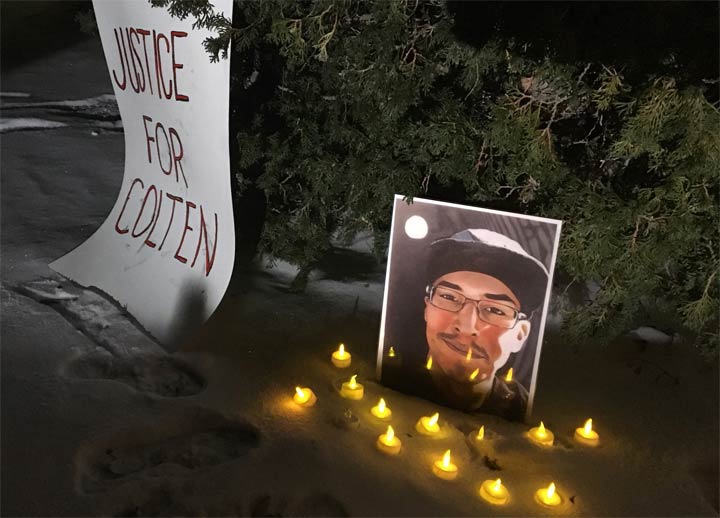There are likely very few Canadians who believe that our nation’s justice system is beyond reproach and that it ought to be left exactly as it is. However, there is no consensus on what needs to change, or even what the problems are in the first place.

To that end, we would be well served by avoiding rash and knee-jerk changes to the system. Hard cases make bad law, as the saying goes, and that certainly summarizes the situation we suddenly find ourselves in.
On Feb. 9, a white Saskatchewan farmer named Gerald Stanley was found not guilty of murder and manslaughter in the death of a young aboriginal man named Colten Boushie. That acquittal has set off a national controversy with the prime minister and his justice minister weighing in on the verdict and the perceived need to change the system.
Prime Minister Justin Trudeau declared that “we have to do better,” a sentiment echoed by Justice Minister Jody Wilson-Raybould. Federal NDP Leader Jagmeet Singh chimed in, too, suggesting that confidence in the system is suffering due to a lack of representative juries.
First and foremost, it seems rather counterproductive to make public comments that could jeopardize a potential appeal. If the prime minister and other federal cabinet ministers and political leaders are sending a message that Stanley should not have been acquitted, then how can he possibly expect a fair trial, if one is ordered?
Instead, our federal leaders should have followed the lead of this Indigenous city councilor in Edmonton:
Moreover, though, it hardly makes sense to engineer changes to the entire justice system solely on the basis of one particular — and unique — case. Much has been made of the fact that there was no apparent Indigenous representation on the jury, and how the defence seemingly made use of its peremptory challenges to ensure that would be the case.
WATCH BELOW: Trudeau promises new legal framework for Indigenous people

Essentially, these peremptory challenges allow the crown and defence to dismiss a potential juror without justification, but they only have a certain number of these challenges to use. It’s not clear how different this jury would have looked absent these challenges or even whether a different verdict would have been rendered.
Nonetheless, Ottawa is looking at scrapping them. Perhaps there is good reason to make this change, but distaste with the Stanley verdict seems like a rather flimsy basis.
What makes us think that aboriginal jurors would have interpreted the evidence or the judge’s instructions any differently? If we’re arguing that simply by virtue of their race these jurors would have reached a different conclusion, that only makes the case for having provisions aimed at ensuring as dispassionate a jury as possible.
Let’s think long and hard about what we want to accomplish here. Are we really proposing a redesign of the system with the express aim of making it easier for the crown to secure a conviction? Given the over-representation of Indigenous Canadians in the ranks of those facing criminal charges, we might just come to regret that.
- Train goes up in flames while rolling through London, Ont. Here’s what we know
- Budget 2024 failed to spark ‘political reboot’ for Liberals, polling suggests
- Wrong remains sent to ‘exhausted’ Canadian family after death on Cuba vacation
- Peel police chief met Sri Lankan officer a court says ‘participated’ in torture
The fact is, peremptory challenges have been used by defence attorneys representing Indigenous clients and they’ve done so for the express purpose of trying to ensure their clients face an impartial jury and receive a fair trial. A number of criminal defence counsel have spoken out about this, and we should heed their warnings.
It would be relatively straightforward for provinces to take steps to ensure that more Indigenous Canadians are asked to serve on juries. In fact, in the Stanley case, an unusually high number of potential jurors were summoned. There were clearly, then, other factors beyond peremptory challenges as to why the jury had no obvious Indigenous representation.
Neither the RCMP investigation into Boushie’s death, nor the Crown’s case against Gerald Stanley, are above scrutiny. There may very well be an appeal of the verdict. But if there are indeed changes needed to Canada’s justice system — or Canadian society itself — a future guilty verdict against Gerald Stanley wouldn’t make any of that need go away.
We would do well, then, to separate the emotional reaction to this particular verdict from the broader conversation about shortcomings in our justice system. And that starts with our political leaders.
Rob Breakenridge is host of “Afternoons with Rob Breakenridge” on Global News Radio 770 Calgary and a commentator for Global News.




Comments